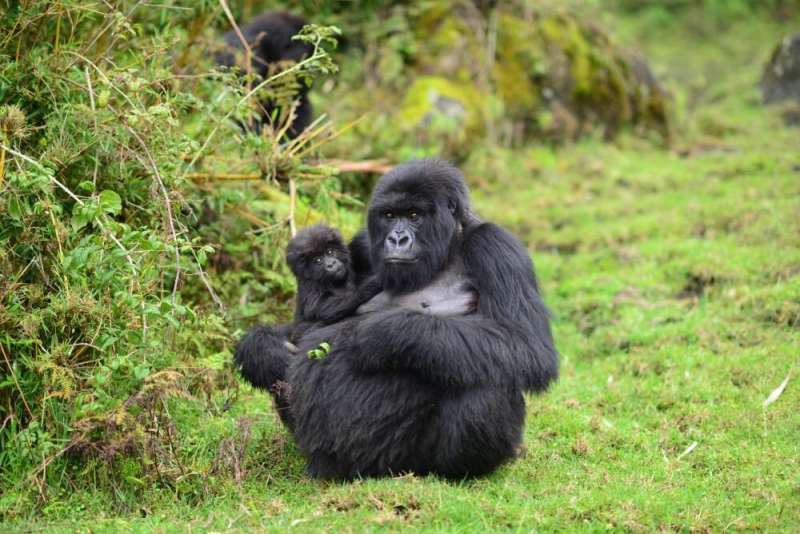Social status, not size, determines reproductive success for female mountain gorillas

Dominance rank among female mountain gorillas is not related to body size but does increase their reproductive output according to research publishing June 3, 2020 in the open-access journal PLOS ONE, led by Edward Wright from the Max Planck Institute for Evolutionary Anthropology, Germany, and colleagues.
Mountain gorillas are the largest living primate and display extreme size differences between the sexes, with males weighing around 200kg—twice as much as females. Body size is an important factor determining fighting ability in many animals and previous research has shown it influences dominance rank in male mountain gorillas.
To test whether this relationship exists in females, an international team of researchers measured the body size of 34 female mountain gorillas (Gorilla beringei beringei) monitored by the Dian Fossey Gorilla Fund International in Volcanoes National Park in Rwanda. They combined dominance rank data from behavioral observations, which have been conducted daily since 2000, with estimates of back breadth and body length for each adult female, calculated non-invasively using a frame mounted with lasers and a digital camera.
In contrast to many species of mammal, the researchers found that dominance rank was unrelated to body size in female mountain gorillas. The results suggest that factors other than physical strength, such as age or group tenure, are more important in determining the dominance hierarchy of female mountain gorillas. Dominance rank still offers reproductive benefits, even for a species with an abundant, year-round supply of food, the authors say. High-ranking females produced offspring more frequently, perhaps as a result of preferential access to males.
The authors add: "Very few studies have examined the interrelationship among body size, dominance rank and reproductive success together. So it was really interesting to find that even though higher-ranking female gorillas had significantly shorter inter-birth intervals than lower ranking ones, which is a proxy for reproductive success, neither of these variables significantly correlated with body size."
More information: Wright E, Galbany J, McFarlin SC, Ndayishimiye E, Stoinski TS, Robbins MM (2020) Dominance rank but not body size influences female reproductive success in mountain gorillas. PLoS ONE 15(6): e0233235. doi.org/10.1371/journal.pone.0233235
Journal information: PLoS ONE
Provided by Public Library of Science





















